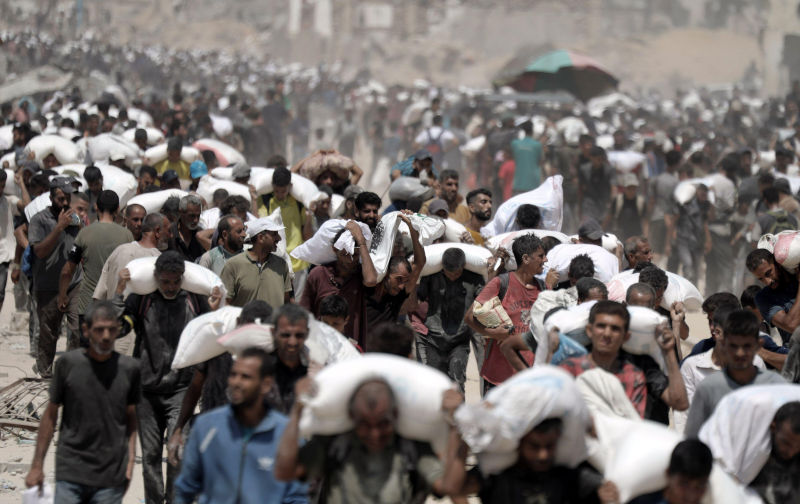Gaza doesn’t need another gesture, it needs real action
August 9, 2025
Like many Australians watching the unfolding devastation in Gaza, I read about Foreign Minister Penny Wong’s recent announcement of $20 million in additional humanitarian aid with mixed emotions.
Of course, any assistance to people suffering should be welcomed, but we also need to be honest about whether this kind of aid is actually helping the people it’s meant for.
The new funding will be divided across several international organisations: the World Food Program, UNICEF, the Red Cross, and the Jordan Hashemite Charity Organisation. But the question remains: are these funds reaching people on the ground? The reality is that without safe passage, co-ordination, and trusted local access, even the best-funded efforts fall short.
Aid exists but Gaza is still starving
Right now, Gaza is in the midst of a deepening humanitarian catastrophe. People are starving, hospitals are barely functioning, and thousands of civilians, many of them children, have been killed.
Despite waves of international pledges and aid announcements, very little assistance is actually reaching those who need it most.
In July, UNRWA stated: _“_UNRWA has enough food for the entire population of Gaza for over three months stockpiled in warehouses — including this one in Al Arish, Egypt — awaiting entry.”
Inside Gaza, the situation is dire. Aid trucks are being blocked, looted, or overwhelmed by desperate crowds. Even when aid is allowed in, it often doesn’t reach the people it’s meant for. Palestinians have been killed while trying to access food, as convoys are overrun in areas where there is little to no protection or co-ordination.
In one case reported, chaos broke out when 47 World Food Program trucks entered Gaza. The trucks were immediately mobbed by starving civilians, prompting Israeli soldiers to fire warning shots. That single incident left more than 50 people dead and more than 600 injured.
In other instances, aid has been looted before it could be distributed, sometimes in areas under Israeli military control. Dozens of trucks have reportedly gone missing or ended up on black markets, while people in Gaza continue to go hungry.
As a friend whose family is in Gaza said: “If aid does make it in, it’s either looted, half of it gone before it even enters, or it’s taken by traders who divide it among themselves before it reaches the poor, and then sell it at outrageous prices no one can afford. Sometimes it’s distributed through UNRWA, but UNRWA only gives aid to 1948 refugees, those who have a refugee card and receive regular assistance.”
These are not isolated incidents. They reflect a wider failure to ensure aid reaches those who need it most.
So what is the point of pledging millions if the aid can’t safely get in?
Humanitarian assistance isn’t a substitute for political courage
This kind of humanitarian assistance, while well-intentioned, feels more like a political gesture, a way for Australia to say “we’re doing something”, rather than a serious response to a crisis that demands real political will.
What Gaza needs is more than scattered aid packages. It needs an immediate ceasefire. It needs the total lifting of the siege. It needs the Rafah border crossing reopened, not temporarily, not conditionally, but as a sustained humanitarian lifeline. It needs countries like Australia to go beyond cautious language and take a principled stand: to call out the targeting of civilians, to demand safe and unrestricted aid access, and to push for international accountability.
Australia also has international obligations it cannot ignore. As an early signatory to the Geneva Conventions, it is legally bound to ensure the free passage of aid and protect civilians in conflict zones, including Gaza.
We can’t keep pretending that humanitarian aid is enough, not when entire families are being wiped out, not when children are dying of starvation, and not when political choices exist that could actually change the situation on the ground.
It’s time to go beyond gestures and take a stand that truly supports Palestinians in Gaza.
The views expressed in this article may or may not reflect those of Pearls and Irritations.

